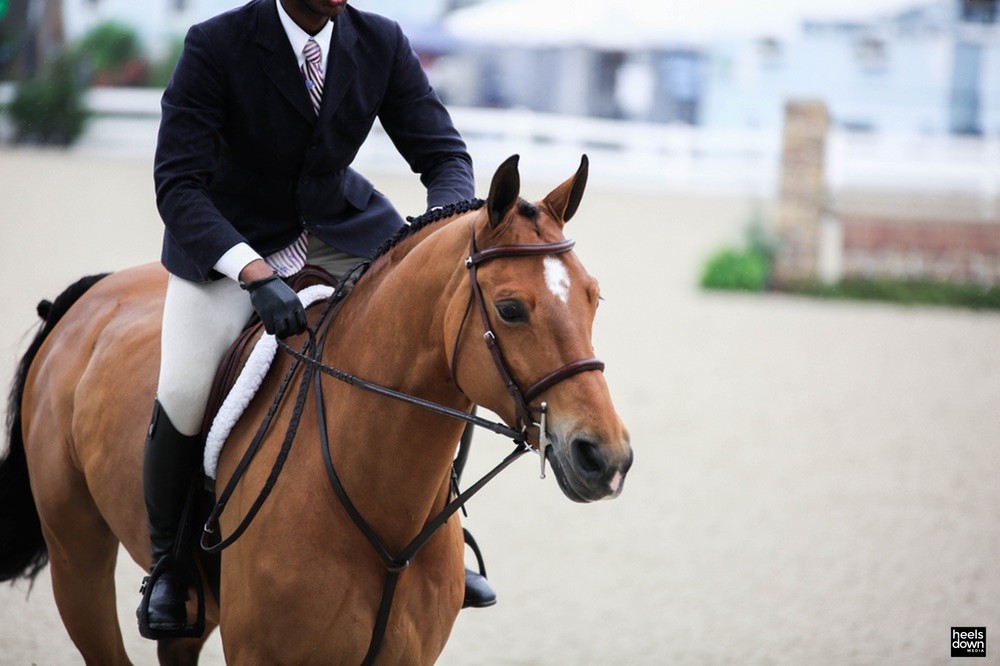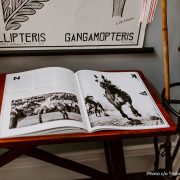Finding the Right Ring for Your Sales Horse

Selling a horse can bring a lot of stress to an owner. Ensuring the horse goes to the perfect home is the end goal for most horse sales, but what if your horse has experience or potential in multiple disciplines? Is there a tried and true formula for deciding how to best market your horse?
We spoke with John Michael Durr, who runs a successful training and sales business for hunters, jumpers and event horses in South Carolina with his wife, Kimmy. John Michael and Kimmy have built up their business by employing match-making skills for both horse and rider, knowing that some horses are better fits for some disciplines than others. But how do you make that decision?
When a new sales horse comes into the program, John Michael starts with an evaluation. “Typically, if I have (horses in to sell), they’re either raw material or there’s an issue that we’re trying to address,” John Michael explained. “If they’re raw material, I take them all through the same exact program, regardless of how they’re bred or what their owners want them to be when they grow up.”
Having a consistent program helps John Michael determine what career path each horse wants to take. “Young horses, or green horses, all get a good solid foundation on the flat and then we take them everywhere,” he explained. “Whether it is doing some ticketed rounds at a hunter show or going cross country schooling, we expose them to absolutely everything we can. Usually, as long as you’re listening, they’ll tell you what they liked the best.”
Indeed, having a finger on the virtual pulse of the horse and what he is telling you is paramount to any success. For John Michael, he wants his sales horses to end up with a career in which they can truly thrive. Of course, there is also the scenario of a horse having anxiety or training holes in a specific discipline, so John Michael and Kimmy do their best to “fix” any problems before continuing their assessment.
Open as many doors as possible for the horse so that they can lead you to the path that’s best for them.
“If we’re getting a horse that has done some competitions and it’s not going great, we can try and adjust and fix the issues before we’ll just immediately think ‘career change’,’ he explained. “It can be as simple as schooling through the water more often until they are more comfortable, or strengthening their form through some gymnastics. But at a certain point if you’re not achieving what you think you should be with a horse, you have to go back and ask ‘Is this the right job for them? Are they truly happy doing what we’ve asked them to do?’ If the answer is no, go back to square one.”
You can only try to fit a square peg in a round hole for so long before it becomes apparent they don’t fit.
If you’re questioning what job your horse wants, John Michael suggests some experimentation. “Take your jumper cross country schooling, let your hunter play dressage for a while,” he said. “See where they feel the most at home and then utilize that. Your horse can only be as successful as it is happy. Now, there are always the horses that don’t want to do anything, so with those type has to factor in a little bit more. There’s always something they’re going to be more adept at, even if they think their one true calling is standing in the pasture eating grass all day long!”
At the end of the day, the biggest piece of advice John Michael offers is to be willing to listen to what the horse is telling you. Pay attention to what they seem to be able to do easily, and what they struggle with. “A horse with a metronome canter who jumps a ten every time and never lays an ear back? Probably make him a hunter. A horse that gets frustrated about lead changes but hunts the jumps and gallops like a pro? Event horse. You can only try to fit a square peg in a round hole for so long before it becomes apparent they don’t fit.”
He uses the example of Over Easy, a former upper level event horse ridden by Barb Crabo who is now a successful hunter. “She was a successful eventer, made it to the upper levels, had some great finishes, but just wasn’t in love with the sport,” John Michael said. “Now she does the hunter derbies and is loving it. She’s had some wonderful finishes with us and I attribute that success to her truly wanting to do this job, she wants to do the hunters. She now has more doors open for her than closed, and I think that’s our job as trainers, riders, and owners: open as many doors as possible for the horse so that they can lead you to the path that’s best for them.”


